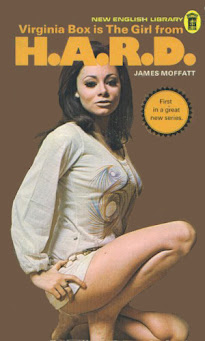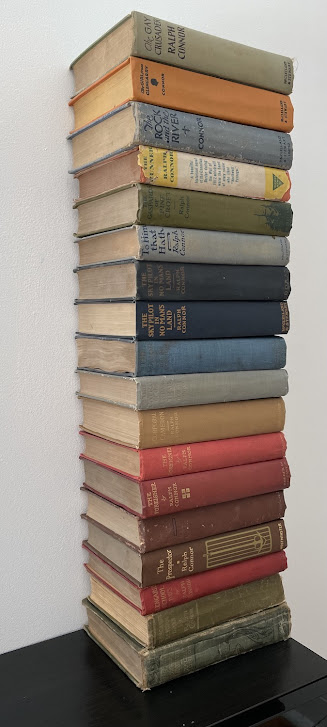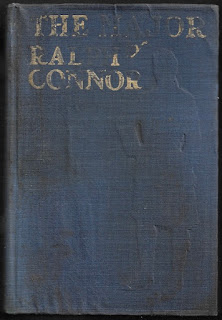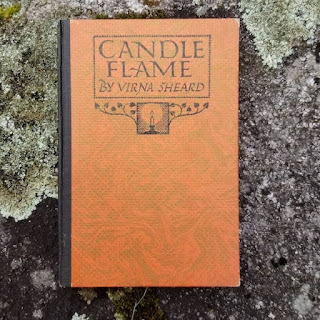James Moffatt
London: New English Library, 1974
112 pages
I first visited the UK in 1974, arriving on a British Airways jet still painted in BOAC colours. My mother had brought us – my sister and myself – to meet relatives and friends of our late father. She gave me fifteen pounds, by far the most money I'd ever held held, which I spent it on a hardcover copy of the most recent Guinness Book of Records, a SHADO Interceptor, and a SHADO 2 Mobile.
The SHADO Dinkys have proven good investments – I have them still – but if I could go back in time, I would buy every copy of Skinhead, Suedehead, Demo, Boot Boys, Skinhead Escapes, Skinhead Girls, Glam, Smoothies, Sorts, Teeny Bopper Idol, Top Gear Skin, Trouble for Skinhead, and Skinhead Farewell I could find. Written by Canadian James Moffatt, sold for 30p, few can be purchased for under one hundred quid today.
The Girl from H.A.R.D.: Virginia Box and the "Unsatisfied" was published during that 1974 summer in England. The second novel in the series, Moffatt presumes that the reader has read the first (right). I had not, but found it took little time to get up to speed. H.A.R.D. is the Hemisphere Administration for Regional Defence. Virginia Box – "leggy, busty blonde" – is its most valued agent. Baird Rodd is her superior. He sits on a "phallic-backed chair" behind a buttock-shaped "erotic desk."
It stank of Rodd manipulation. As if her boss had deliberately put the computers to work and punched Box against lesbian and waited for a tray of cards to provide him with some inner, perverted sense of achievement.
Quickly now, she dressed. When she finished she postured before the mirrors again. The small, uplift brassiere did nothing except emphasise how firm her breasts really were and hoe exciting their nipples could be when fully awakened. The transparent blouse let every man see this. And the mini-skirt only served too whet appetites which could not, after one glance, have failed to be already whetted. Curvaceous legs, more curvaceous thighs beckoned sensually."You're a sight for sore, lecherous eyes," she told her glassy self.
Object and Access: A slim softcover. If WorldCat is to believed – why should it? – only the National Library of Scotland has a copy. Mine was bought four years ago. I see only one copy listed for sale online. At US$9.96 it might seem a bargain, but the bookseller lists the shipping from New Zealand to Canada at an even US$37.00.




















